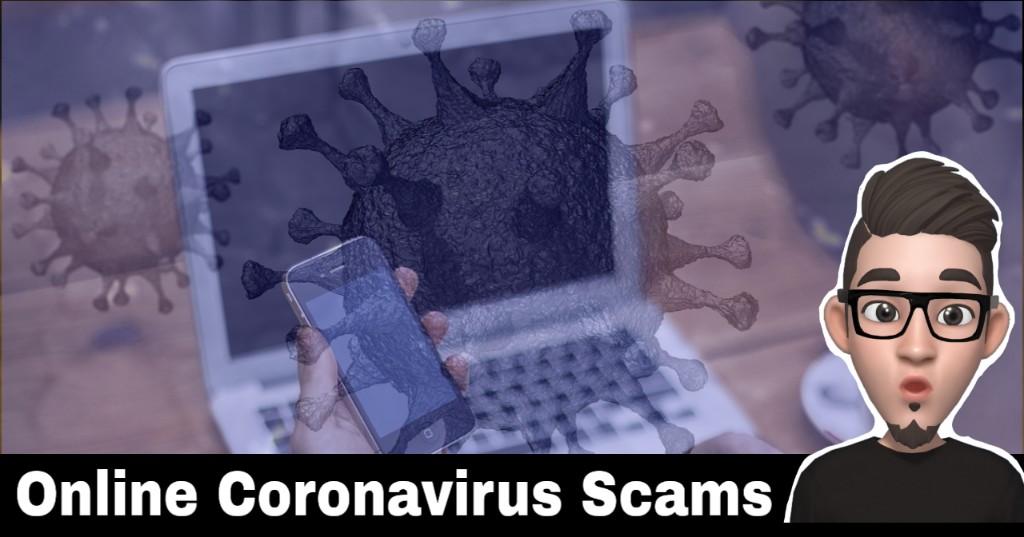While world is busy fighting over coronavirus pandemic, a parallel global digital “virus” rise to take advantage of current situation. Hackers take advantages of this situation by exploiting people’s fear towards coronavirus. Their modus operandi was doing online coronavirus scams.
Online Coronavirus Scams
Scammers take advantages of this situation by exploiting people’s fear and concerns towards pandemic corona virus, and get them to fall into their tricks. Scams that already been observed and might raise include:
- Posing as World Health Organization or National Public Health Authority. Scammers will send email to victims and claiming themselves as WHO or Local Nation Healthcare and ask you to download the safety tips. But, when victims download, turns out it is a malware programmed to steal banking credentials or keylog victims password.
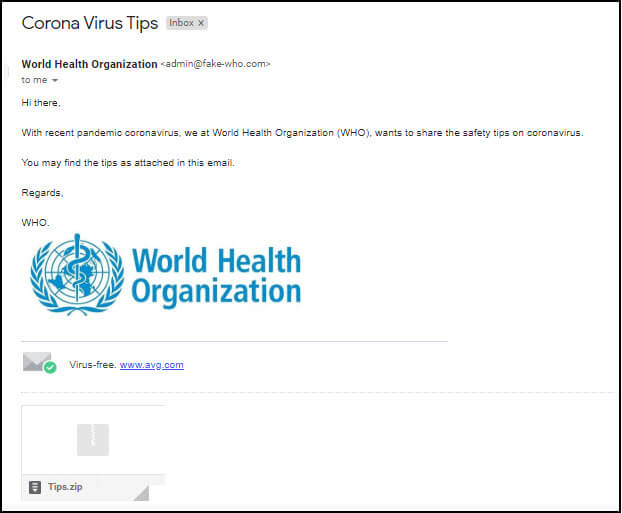
- Scams on selling face masks and sanitizer. While there are very high demands on face masks and sanitizer, scammer will try to sell them but only give the buyer with other non-usable items to buyer such an empty box or sponge.

- Email or message from tax authorities offering victims tax refunds. Victims received message from tax authorities (as what they claimed) to offer victims tax refunds. All the victims need to do just provide bank accounts details.
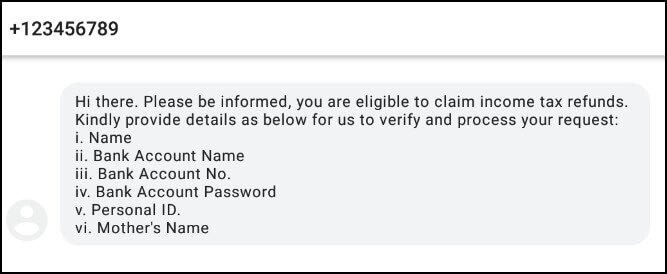
- Email or message from government on financial support. Government will provide financial support to its citizen. Scammers will take this opportunity by sending fake email or message to victims, to verify victims information. All they have to do is by asking victims name, address, phone number and mother name, which is clearly a total scams.

- Donate to find the cure. While we are in the desperate of finding the cure, scammer will pose as healthcare or health specialist to find the cure. What delaying the process of finding the cure is there are lack if funding. Hence request victims to donate money via untraceable bitcoins.
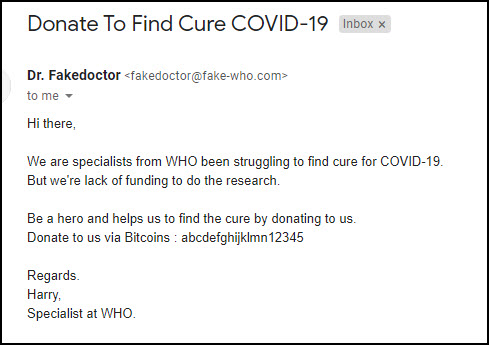
- Donate to help others. It’s true that most hospitals are running out of equipment such as Personal Protective Equipment (PPE) and face masks. Also, there are people are really in need of money and food just to survive. Scammer will claimed as legit organization and ask for donations, which later the donated money will never reach the one in need. Many of the scammer detected have asked the victims to transfer via untraceable bitcoins.
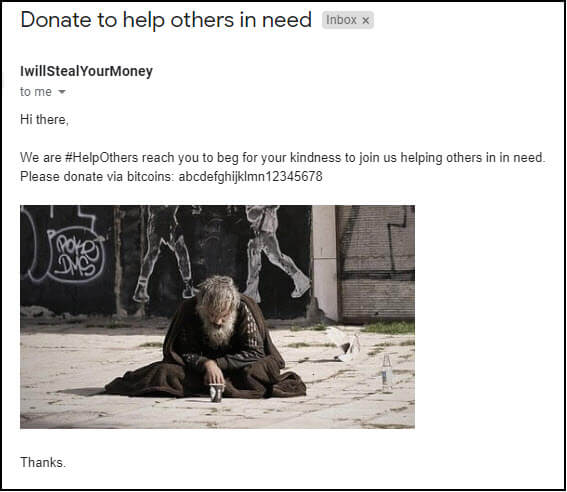
- Phishing website of Coronavirus. Phishing techniques never get old or forgotten when it comes to trick and steal user personal information. There are websites providing legit latest information on Coronavirus. Hackers will use similar domains to the legit one, and use them to gather your personal information. The domains designed to catch common typos , using words such as “doronavirus” instead of “coronavirus”.
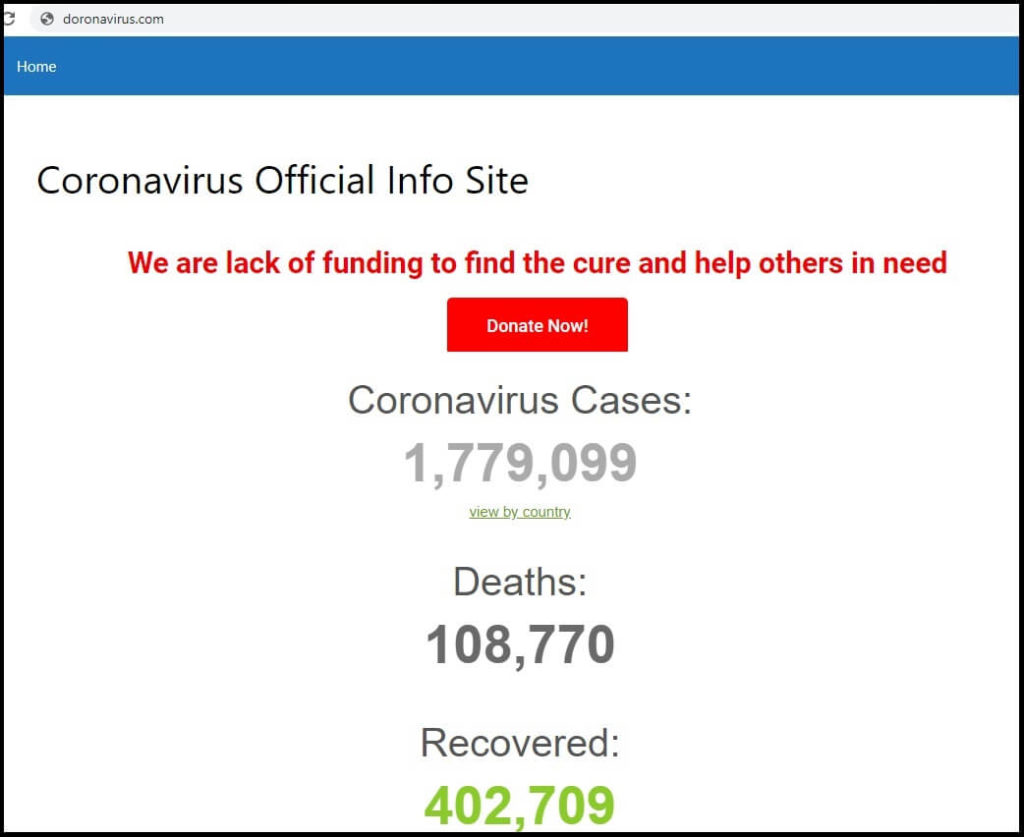
- Offering free Coronavirus test. This might be legit. But you need to be extra careful on verifying this offer. This can be a tricked especially when it requires victims to provide personal information such as bank details or credit card details. It is recommended for you to contact your national public health authority to verify.

- “Your Coronavirus test is arrived!” Thought the victims might never submitted any sample for testing, they might be curious to know the test results. All they need to do is providing sensitive personal data. If you did testing, make sure you do double-checking the procedure, like how will the results provided to you? Is it by email or call? What is the email address or phone number? Is there anything you should provide them via email or call?
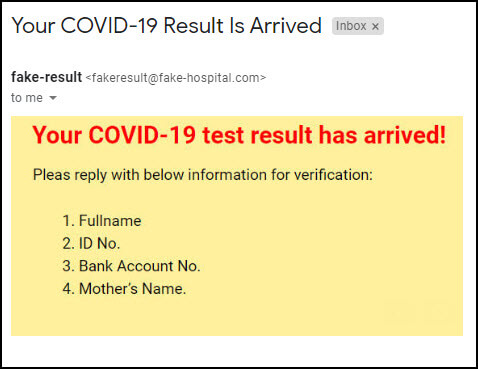
- Fake Coronavirus cure. Scammers will claimed that some Doctors in China or America already have the vaccine, but only in limited quantity. All the victims has to do is to click the link and enter their personal information – OR request to transfer such an amount of money to buy the vaccines.
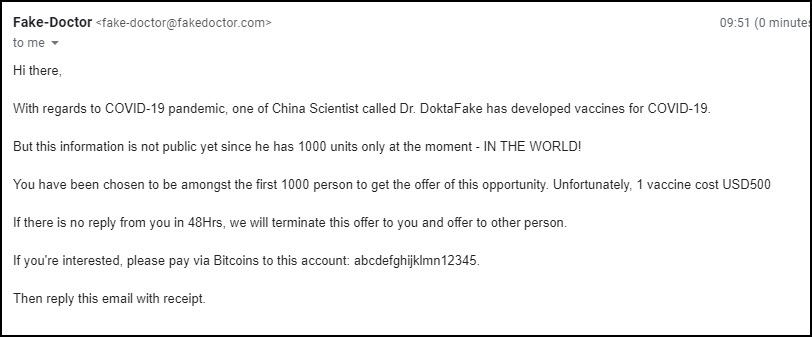
Tips To Prevent From Being Victims
Here are the tips (but not limited to) to prevent yourselves from being victims of online coronavirus scams.
- Don’t download anything your received from email or SMS. Especially when you received randomly from some one you don’t know. The file that they want you to download, might highly-possible virus.
- Keep calm. There are high demands on face masks and hand sanitizer, but are in low stocks. But imagine, if those aren’t. Will you buy from someone randomly sent you SMS or email asking if you interest to buy from them? Especially when they asking for your credit card details. It’s recommended to buy from reputable dealer or go to local stores. Stick your common sense together and don’t let fear get the best of you.
- Donate to the right place. It is recommended to donate to proper channel that approved by government or local authority. Don’t easily donate to anyone especially when they request donation from Facebook. Well, it may be legit, but it also can be a scam. Scammer just can grab any “pity” pictures from internet to convince you.
- Verify any URL you received or email address. If you received any email, especially with URL inside the email content, verify if both URL and email are legit. Do some research. If you should expect to receive email from your healthcare, ensure that you received from the right sender. For example is it “help@publichospital[.]com” or “no-reply@publichospitals[.]com”?
Thanks for reading this article. I hope you find it useful. You might interested to read how to work from home securely during quarantine.

